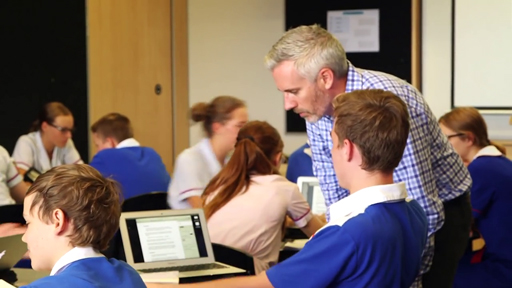6 Creating a peer-to-peer observation culture
When you observe others, how useful is it towards developing your own understanding of coaching? Similarly, if you are only occasionally observing a particular coach are you then seeing their normal behaviour or are you witnessing a special performance put on for your benefit? Both these questions raise issues about the value of the observational process and how it could be improved to become a better learning experience for everyone.
In the next activity you’ll learn about the potential value of peer-to-peer learning, especially when it is implemented sensitively and developed gradually as the trust between peers grows.
Activity 6 Peer-to-peer observation
Watch the following video from the Australian Institute for Teaching and School Leadership. Ask yourself, do the topics raised in this video have implications for the practice of observing and providing feedback to coaches?

Transcript: Video 5
Discussion
This school slowly created the peer-to-peer observation scheme, initially without feedback, to ensure that it was not perceived as a threat. Applying this to coaches could be useful if it were explained that watching other coaches, without feedback, is an important opportunity for everyone to learn. Extending this to a mutually beneficial exchange of ideas, good practice, problem solving and extending knowledge through a peer feedback process could be exciting. This would work best between coaches who work together regularly, and those who know each other well – could they be encouraged to become each other’s coach developer. If so, this might be a form of critical friendship that was identified as one of the roles featured in the Coach Developer Family (Session 1, Figure 3).
Anecdotal evidence from the practice of some of the biggest companies in the world (e.g. Adobe, Deloitte and Accenture) indicates how they are moving away from formal annual appraisal processes in favour of more regular, informal developmental conversations between staff. This is increasingly being known as Peer-Assisted Learning (PAL).
Sports coaching can perhaps learn from this and recognise and encourage more peer-to-peer learning conversations between individuals.

